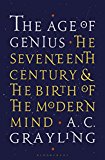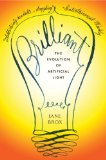Summary | Excerpt | Reviews | Beyond the book | Read-Alikes | Genres & Themes | Author Bio

The Life and Times of the Telescope
by Fred Watson'Provides a fine overview of the 400-year history of the telescope...Watson relates intriguing stories while providing them with a rich cultural context...gathering all of this material in one place and presenting it in such an engaging style is a considerable accomplishment.'
The telescope is undoubtedly one of the world's most
far-reaching inventions. For the past four centuries the telescope has stood at
the forefront of human discovery. From its humble beginnings in
seventeenth-century Holland, when a simple spectacle-maker first presented his
invention to his country's military leaders, to today's colossal structures
housed in space-age cathedrals, the telescope has unlocked nature's secrets. And
in the past decade, the Hubble Space Telescope has brought us to the very edges
of the universe, and the very beginning of time. How did the telescope—a potent
mix of art, science, and engineering—reach its present level of sophistication?
The history of the telescope is a rich story of human ingenuity and perseverance
involving some of the most colorful figures of the scientific world—Galileo,
Johann Kepler, Isaac Newton, William Herschel, George Ellery Hale, and Edwin
Hubble. Stargazer brings to life the story of these brilliant, and sometime
quirky, scientists as they turned their eyes and ideas beyond what anyone
thought possible. Professor Fred Watson, one of Australia's top astronomers,
writes clearly and skillfully, without technical jargon but with a dash of
humor, explaining the science and technology behind the telescope, and the
enormous impact that it has had for four hundred years on how we have come to
understand our universe.
If you're passionate about astronomy and things scientific this is obviously a book not to miss; however, even if you're not particularly interested in science you'll likely enjoy browsing this expansive excerpt which will take you on a whistle-stop tour of modern astronomers and their very big toys,..continued
Full Review
 (426 words)
(426 words)
(Reviewed by BookBrowse Review Team).
Dr Fred Watson is Astronomer-in-Charge of the Anglo-Australian Observatory at Coonabarabran in central New South Wales, where he is responsible for the scientific output of Australia's largest optical telescope. His articles have appeared in many well-known journals, including New Scientist, Sky & Telescope and Astronomy Now. He is a frequent broadcaster, and has a monthly phone in show on Australian radio.

If you liked Stargazer, try these:

by A.C. Grayling
Published 2017
Out of a 'fractured and fractious time,' the author asserts persuasively, the medieval mind evolved into the modern. Another thought-provoking winner from Grayling." - Kirkus

by Jane Brox
Published 2011
Brilliant offers a sweeping view of a surprisingly revealing aspect of human history--from the stone lamps of the Pleistocene to the LEDs embedded in fabrics of the future.